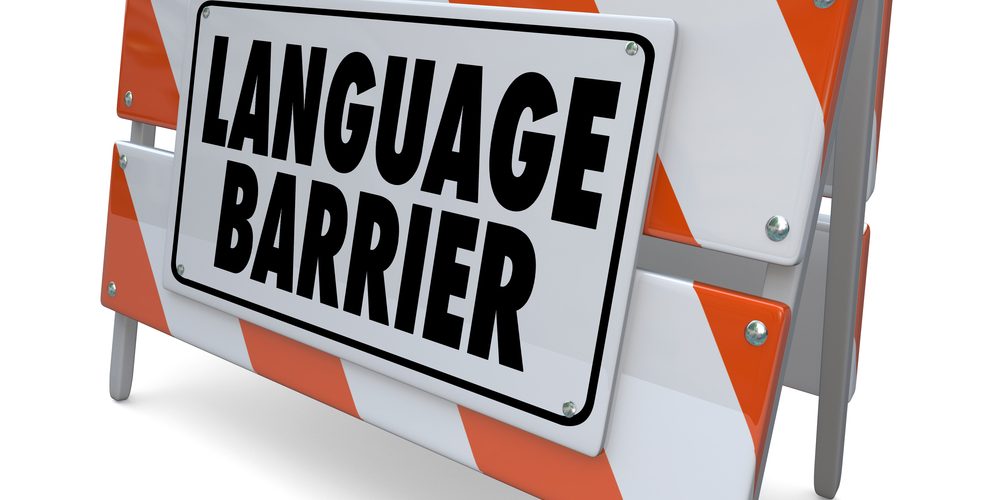Providing Access to a Medical Interpreter is the Law:
The rapid growth in our populations diversity, has left workers in healthcare facilities across the United States scrambling to effectively provide care for limited English proficient (LEP) and deaf patients. Commonly encountered language barriers are preventing medical staff from understanding, communicating and providing quality care to patients who don’t speak English. In 2013, 25.1 million people living in the US were considered LEP, which equates to 8% of the population not being able to speak, read or write English fluently. Healthcare facilities are witnessing first hand the implications caused by language barriers on a daily basis. In efforts to combat poor patient care caused by language barriers, laws have been passed to protect the rights of non-English speaking and deaf individuals in this country. Providing a medical interpreter when language barriers are faced in healthcare is no longer an option, but a requirement by law.
Americans with Disabilities Act (ADA):
This legislation prohibits discrimination and guarantees people with disabilities have the same rights and opportunities to participate in and benefit from services offered within mainstream American society. This means a medical interpreter must be provided when requested to aid in communication in healthcare settings. Failure to comply with this anti-discrimination, civil rights legislation can result in substantial penalties and can also cast a poor light on your medical facility.
Affordable Care Act (ACA), Section 1557:
Section 1557 is the civil rights provision of the Affordable Care Act (ACA), this law prohibits discrimination on the basis of race, color, national origin, sex, age, or disability in certain health programs or activities which receive funding from the U.S. Department of Health and Human Services (HHS). The law requires covered entities take reasonable steps to provide meaningful access to all patients regardless of the circumstances. Covered entities are now required to incorporate language services into their practice in order to better assist with patients who need aid to communicate. Section 1557 prohibits the use of a bilingual staff member, child or family member to be used as a medical interpreter. The use of an unqualified interpreter is extremely dangerous because these individuals are not trained as professional medical interpreters, therefore important information is at risk of being conveyed poorly or completely lost in translation.
Providing a Medical Interpreter is the Solution:
To doctors and medical staff, communication is key in providing appropriate and effective health care services to patients. Without the ability to effectively communicate it’s nearly impossible to provide optimal care to non-English speaking or deaf patients. Being provided with a medical interpreter is a basic right for LEP and deaf patients. A medical interpreter ensures the patient has a clear understanding of the information being relayed to them so they can make informed decisions regarding their healthcare. It’s imperative patients understand what’s going on in a medical situation, how medicines work, treatment plans, the prognosis, medical history, information regarding surgery and tests. Having a medical interpreter present to facilitate communication also ensures medical staff understand symptoms and information collected from the patient so they can properly treat the issue at hand. Providing your patients with access to a medical interpreter helps to combat the substandard care and discrimination LEP and deaf patients face on a regular basis.
Acquiring the aid of a medical interpreter can be easily accomplished by partnering with a language service company. Medical interpreters can be accessed through various language services designed to accommodate your specific need and situation. Language services such as on-site interpretation, telephone interpretation and video remote interpreting (VRI) are highly effective solutions used by healthcare facilities to combat language barriers. A single misunderstood word can have major consequences, every interaction must be completely precise and accurate. A lack of interpretation services in medical settings can lead to breaking the law, patient harm and even fatal consequences. Risking a life due to a misunderstanding, when there are interpretation services available to bridge language gaps is neglectful and irresponsible. Hire a language service company so all your patients are taken care of despite the language they speak.
Niki’s Int’l Ltd. is a WBENC-Certified Women Business Enterprise with 20 years of language service experience. A global network of highly skilled interpreters and translators are available 24 hours a day, 7 days a week for on-site, telephonic and video remote interpretation services. Our linguists are available in over 350 languages and dialects, and our network includes certified interpreters and translators. Our work is guaranteed with a $1 Million Errors & Omissions policy, so that you can be confident that your project will be completed with the highest level of quality and professionalism within the field. For more information contact us at 1-877-567-8449 or visit our website at www.nilservices.com.


